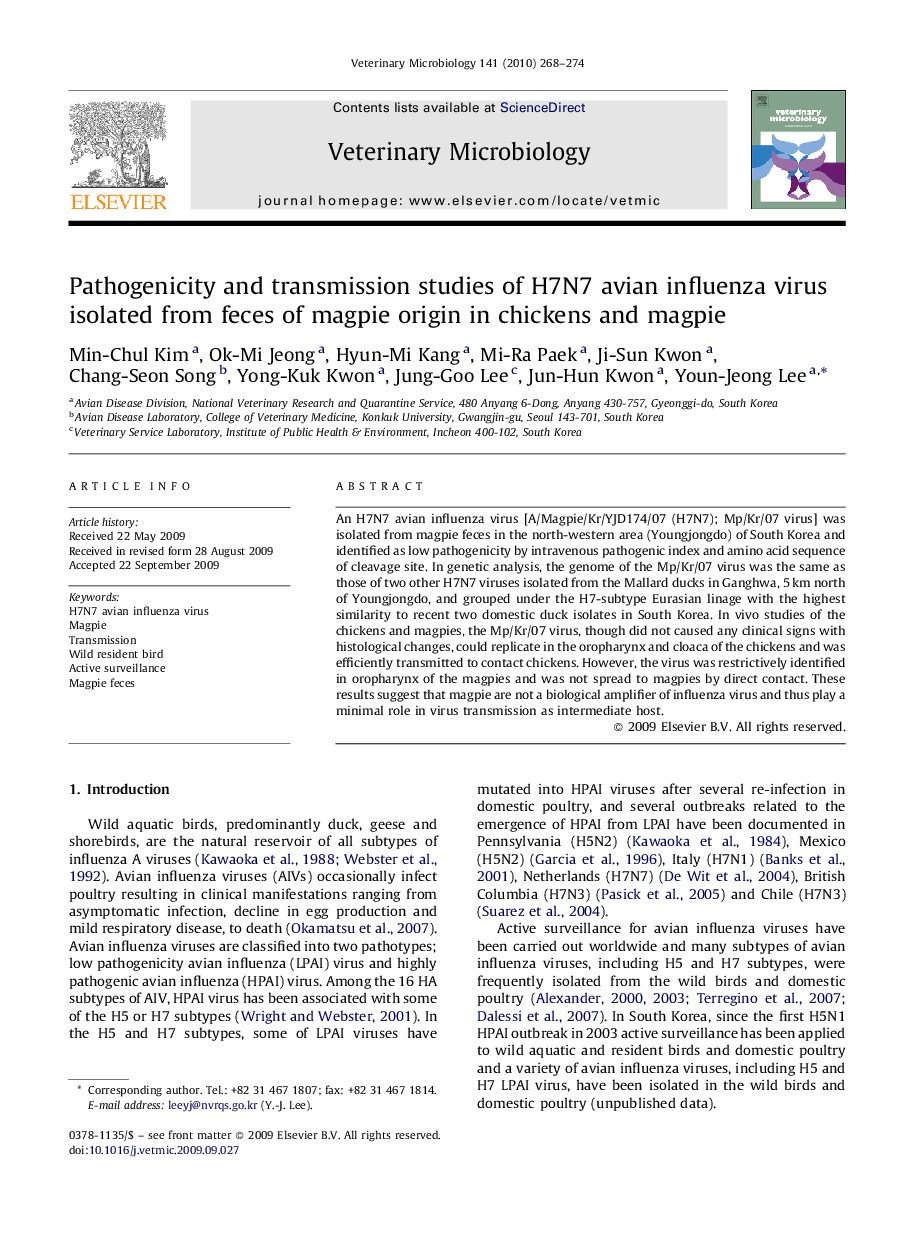| Article ID | Journal | Published Year | Pages | File Type |
|---|---|---|---|---|
| 2467809 | Veterinary Microbiology | 2010 | 7 Pages |
An H7N7 avian influenza virus [A/Magpie/Kr/YJD174/07 (H7N7); Mp/Kr/07 virus] was isolated from magpie feces in the north-western area (Youngjongdo) of South Korea and identified as low pathogenicity by intravenous pathogenic index and amino acid sequence of cleavage site. In genetic analysis, the genome of the Mp/Kr/07 virus was the same as those of two other H7N7 viruses isolated from the Mallard ducks in Ganghwa, 5 km north of Youngjongdo, and grouped under the H7-subtype Eurasian linage with the highest similarity to recent two domestic duck isolates in South Korea. In vivo studies of the chickens and magpies, the Mp/Kr/07 virus, though did not caused any clinical signs with histological changes, could replicate in the oropharynx and cloaca of the chickens and was efficiently transmitted to contact chickens. However, the virus was restrictively identified in oropharynx of the magpies and was not spread to magpies by direct contact. These results suggest that magpie are not a biological amplifier of influenza virus and thus play a minimal role in virus transmission as intermediate host.
